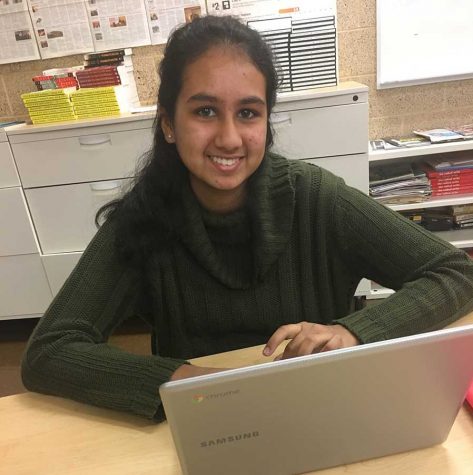How to Get Into College
Following graduation, the class of 2018 can now focus on selecting courses, buying supplies, and finding a roommate for next year. For juniors, the process is just beginning.
We asked guidance counselors and members of the class of 2018 for advice on the process and how to make one’s application unique and competitive.
The Application
Senior Greg Glova explained the general format of the common application for college.
“Usually there are a lot of questions that ask about your personal hobbies and interests,” he said. “…Writing college applications is a very introspective process. I think I learned a lot about myself just writing it because basically you’re trying to sell yourself as a … product.”
He added that there are multiple essays involved in the application process, including supplementary essays that encourage more creative responses, one type of essay limiting the response to around ten words.
“You have the common app essay, which is the general essay that every college gets,” Glova said. “This is your primary chance to show them who you are outside of grades and academics, and then if you’re applying to top tier colleges…usually every single one has supplementary essays on top of it.”
In addition to the common application and essays, colleges require test scores, such as ACT and SATs. Downey explained that most students at Beachwood use their ACT scores.
Tests such as the ACT can be taken more than once, and students are encouraged to send the scores they earn as juniors.
“Some students get concerned about…[sending] their best score, and that’s fine,” Downey said. “That’s understandable, but we encourage our students…to send [junior year] scores because it’s free. They get to send four scores for free… to four colleges that they might be interested in.”
After the application is accepted, there is typically an interview process for more competitive schools, which include questions about the students’ classes, hobbies, personality and interests.
“…[Colleges] try to make [interviews] very low pressure and non-evaluative, but I’d still prepare for them,” Glova said. “They still m
after quite a bit, and after that… you just wait a couple months and see if you got in or not.”
“Be able to communicate and relate and just…be a teenager when [you] talk to some of these alumni,” Downey added.
Senior Kelly Chiang explained that once applications are submitted, applicants get results within the next few months. The first round of applications are due in October and November.
“If you’re applying for early action or early decision, you apply around November-December,” Chiang said. “Some [college send] the results before Christmas…[so results] will come any time between January…and [April].”
Strengthening a College Application
A major aspect of a strong college application is good grades as well as a rigorous curriculum.
“Colleges want to see a good balance [and] rigor, especially in your junior year, and it’s okay… if [in] some of those [higher level] classes…you don’t get an A, rather than taking all general level courses and getting As on all those, but every student is different, and it also depends what is the fit,” Downey said.
“The first semester grades go on your transcript,” Chiang said. “Some colleges require a midyear transcript, so counselors will send them in once first semester’s over…but second semester senior grades will still show up on your final transcripts…before your graduation, so it’s not like you can just have all Fs.”
In addition to grades, Downey encourages students to find the right balance of extracurricular activities.
“[You should have] strong rigor in your course selection, but also…[be] involved in clubs, athletics and leadership positions… so your application looks more well-rounded and not just all AP,” he said.
“I think colleges look for grades and ACT/SAT scores, obviously, but also extracurriculars such as sports and clubs and some form of originality,” senior Megan Quinn said.
Glova added that being unique is an important factor in having a strong application.
“I think [colleges like] the…really strange or particular interests which other people don’t have… [For example,] someone who’s interested in horseback riding will look a lot more unique than someone who’s interested in soccer.”
“…[You] need to have grades, activities, and leadership positions, but you also need something that distinguishes you,” Glova explained. “You can’t just have activities which [are] just kind of randomly strewn about… they need to be all kind of tied together.”
Leadership roles and volunteering are another important aspect of distinguishing oneself on college applications.
“…Whether it be a sports position, or a club position, or maybe some leadership programs you’ve done in the summertime, or maybe a leadership seminar you attended…Those kinds of things do carry weight,” Downey said.
“If you show you have…done a lot of volunteering,…I think that’s something that really [makes someone] stand out” Chiang said.
Even if students do not know what profession they want to study, they can still apply for any college but are encouraged to have a general idea of what field to study.
“Often times,…you have to apply to a specific college, like [a] college of engineering or arts or science or business, so if you could at least narrow it down to the very basics…that’s usually all you need,” Glova said.
However, Downey emphasized the importance of finding balance during high school to prevent stress and becoming overwhelmed.
“[Students] have plenty of time to receive college credits once they’re there…[so don’t] overload yourself here, because you want to enjoy high school, and we really stress that,” Downey said. “We understand that a lot of kids want to see what their peers are doing and take [a lot of] high level courses, but… [students should also aim for] a good balance…so they enjoy their time here.”
Tips
Downey encourages students to go on college visits to find the right fit.
“We…really encourage our students to visit those schools because a student who you think might want to go to a huge university… might feel more comfortable at a private school or a small university,” he said.
Chiang agrees that college visits are extremely important when deciding on a college.
“Go on [college] website or do some campus visits, find out more about their school,” she said. “I didn’t really know very in-depth about some of my schools, and when I was writing my supplemental essays, I [felt] like… should have researched more about this school…Definitely look at different aspects of a school, and when you’re choosing a school that’s really important.”
Chiang added that students should start looking for at colleges in second semester.
“Second semester of junior year I started looking at schools because that’s when you want to start taking the ACT, SAT…and you have to send the scores to colleges, so you want to have [an]… idea [of] where you want to go…”
Quinn explained that applying may be a stressful process, but there are many opportunities available.
“It may be hard,” she said. “[But] try not to stress about it, because if you get declined, it’s always possible to go somewhere else then reapply to that school.”
“I think [the hardest part is] finding that way to sell yourself and trying to find a way to kind of distinguish yourself… [to] make you seem as non-generic as possible,” Glova added. “Don’t procrastinate with the essays. You need a lot of time to really try to write creative, thoughtful responses…[and] really try to find a way to brand yourself.”
“When you’re a junior scheduling for your senior year, look for balance so you can have time for application fees and deal with that stress and involvement in those kind of things,” Downey said. “Ask…many questions, go on visits…to find the best fit for you.”

Prerna Mukherjee has been writing for The Beachcomber since the fall of 2016. She covers a variety of school and community events. In her free time, Prerna...













